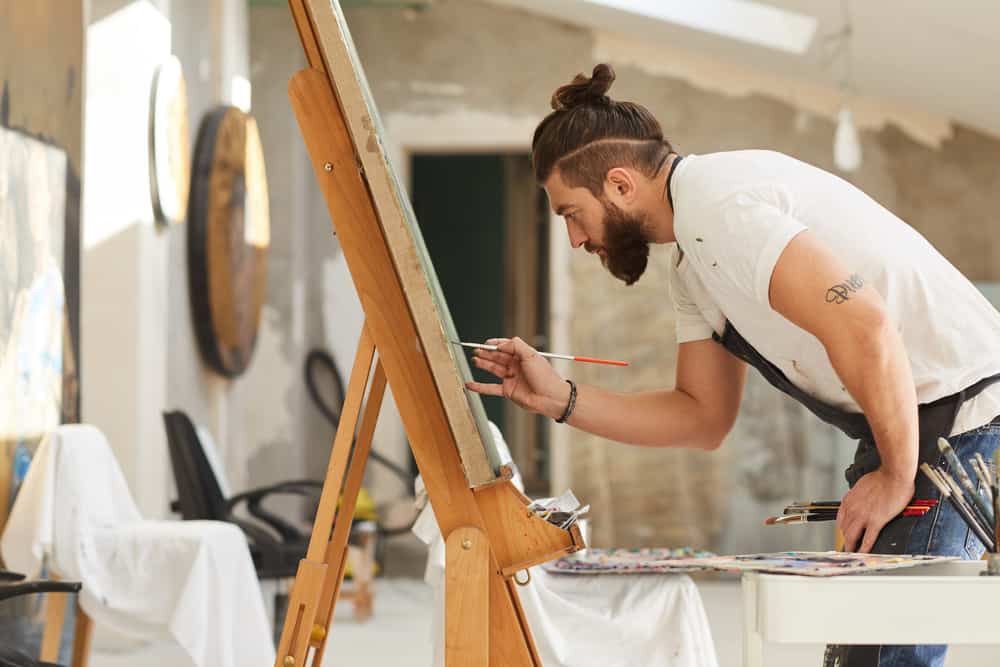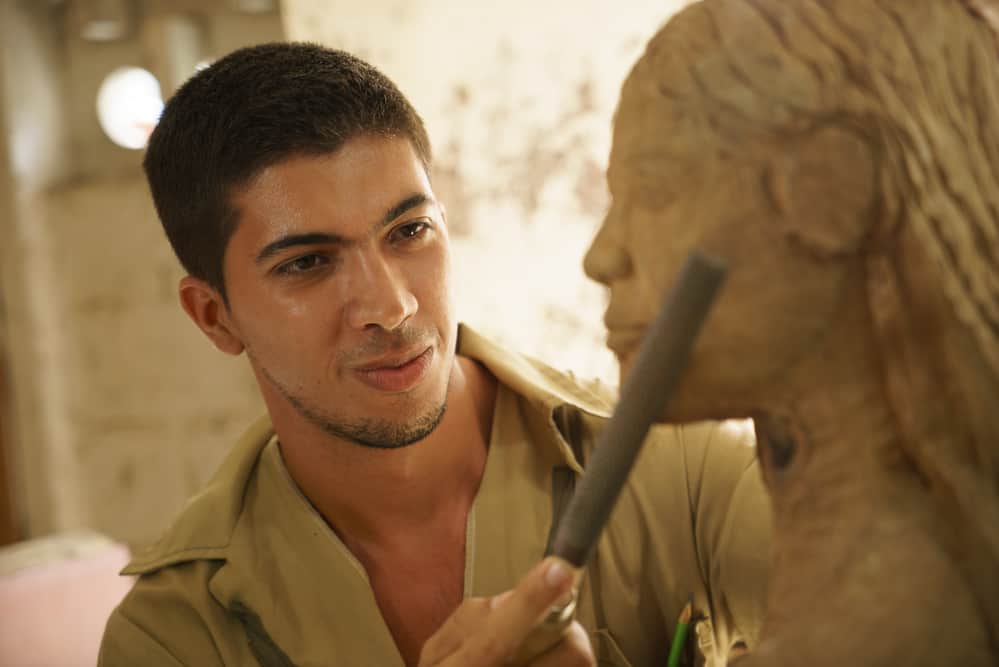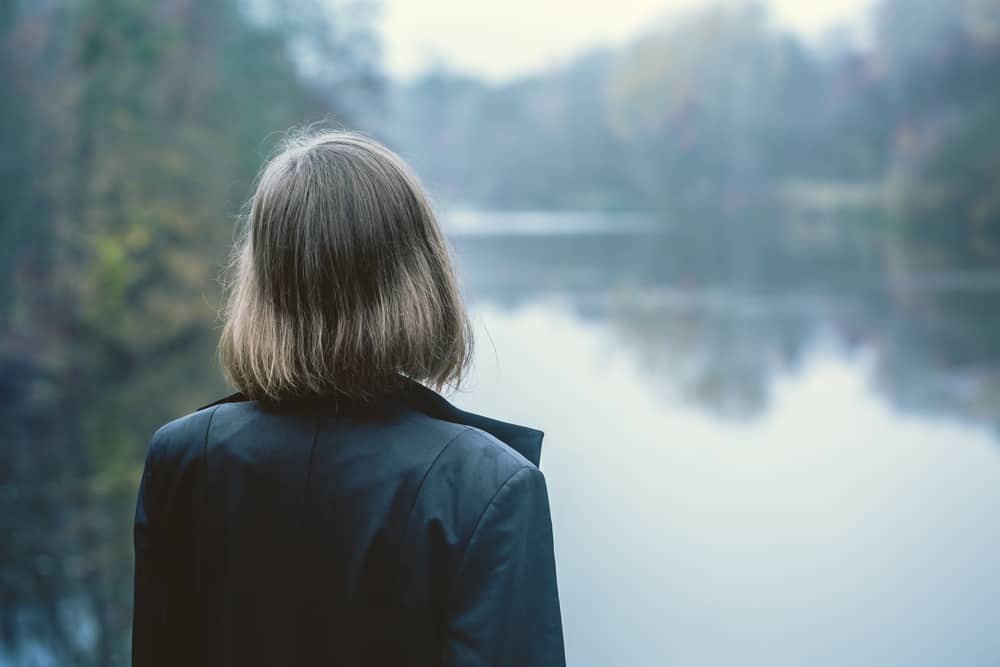
Creativity is often seen as a solitary pursuit, with many of history’s greatest artists, writers, and musicians having been known for their solitude and introspection.
From Vincent van Gogh painting in the countryside to J.K. Rowling writing in cafes, there seems to be a common link between creativity and solitude.
But why do so many creative people crave time alone?
Key Takeaways
- Creativity is often linked with solitude, with many renowned artists, writers, and musicians known for their introspective nature.
- Solitude fosters deep thought, self-exploration, and self-reflection, serving as a rich reservoir for creative ideas.
- Being alone enhances the mind’s ability to wander, envisioning novel concepts and sparking creativity.
- Solitude provides a quiet environment, enabling creative individuals to concentrate deeply, fostering innovative concept exploration without interruptions.
- Embracing solitude encourages risk-taking and experimentation, allowing for the exploration of unconventional and groundbreaking ideas.
Why do creative people prefer to work alone?
Solitude can inspire creativity by providing time for self-expression and introspection. It also allows experimentation with new techniques without fear of judgment or criticism. Without the distraction of others, the thoughts become more focused and better able to tap into a state of creativity.
If creative people rely upon solitude (or even loneliness) to do their best creative work, what is the benefit of spending time alone for creativity?
Why is being alone good for creativity?
Being alone (or lonely) presents a unique array of benefits for creative people, both as a necessity and as an opportunity for self-expression. Here’s why solitude and quiet time is important for a creative life.
Solitude fosters deep thought and self-exploration, enriching creative ideas.
The power of introspection is evident as solitude provides a space for self-reflection and introspection, which can be helpful in developing new ideas and gaining new perspectives.
Creative people are often thought of as “out there” or eccentric, but this is not necessarily the case—they just have a different way of looking at things than most people.
Alone time allows the mind to wander, igniting creativity.
Being alone allows creative people to tap into their imagination and come up with new and innovative ideas. Imagination is the ability to see things in your mind that don’t actually exist. It allows a person to think beyond the ordinary and come up with new ideas.
Solitude enhances focus on creative tasks, boosting productivity.
Solitude provides a quiet environment that allows creative individuals to concentrate and focus on their work. Focus is a key component of creativity. Without focus, it is difficult to come up with new ideas and bring them to fruition. It essentially gives you the time to think about your work and develop new ways of approaching it.
Solitude helps creatives discover their unique voice, free from external influences.
Solitude can help creative individuals find a balance between their personal and professional lives, allowing them to focus on their craft and pursue their passion. Many find peace in solitude, as it’s a great way to recharge and refresh the mind. This allows creative people to come back with a renewed sense of purpose.
It’s essential to stay strong when you are alone, as it can help you gain perspective on your goals and objectives in life, helping you to be more efficient and focused in your creative pursuits.
Alone time offers clarity in expressing thoughts, leading to authentic creativity.

Some creative people feel that they are able to express themselves more freely when they are alone, as they are not inhibited by the expectations of others. This can help them to be more authentic in their expression.
Especially for introverts, even simple acts like eating alone or spending time in solitude can help build self-confidence.
Being alone strengthens reliance on personal instincts, promoting autonomy.
While being alone with your thoughts can be dangerous for some, being alone can provide creative individuals with a sense of independence and freedom, which can help to inspire new ideas, drive creativity, and enable them to thrive in an artistic state.
It can also help them to feel more confident in their ability to function independently, which is beneficial when it comes to making decisions. This can also lead to feelings of empowerment, which can be a motivating factor for creative people.
Solitude allows uninterrupted deep concentration, fostering innovative exploration.
While some might be afraid to be alone with their thoughts, solitude allows creative people to escape from external distractions and societal pressures, which can interfere with the creative process.
Solitude allows the mind to wander and process information in a way that is not possible when interacting with others.
Peaceful isolation also provides a place for creative people to be alone with their thoughts, which can help them tap into the subconscious mind and gain inspiration from within.
Solitude promotes risk-taking and exploration of groundbreaking ideas.
In solitude, creative individuals can experiment with new techniques and approaches without fear of criticism or judgment. This allows for a more objective perspective, which is essential to the creative process.
It also allows the individual to think outside of their comfort zone, which can be difficult when others are present.
How can you use alone time to be more creative?
Undeniably, creative people are able to tap into the subconscious mind and gain inspiration from within. This is because they have trained their minds to be more open, which allows them to see things in a different light. So how can you use healthy alone time to be more creative?
Set aside dedicated alone time.

A great way to start using alone time is by setting aside dedicated alone time. This could be a few hours every week, or even a full day on the weekend. You can use this time to meditate, read a book, or just sit and think about whatever comes into your mind. The idea is that you’ll use this time to focus on yourself and your thoughts, which will allow for more creative thinking.
Start a journal.
Keeping a journal can be an excellent way to practice alone time and get creative in the process. You don’t have to write down anything specific; instead, focus on whatever comes into your mind during this time. This could include ideas for shaping your own destiny through things like:
- projects/tasks at work
- reflections on past experiences
- personal musings about life
- goals/tracking progress
- unexpected ideas/realizations
Immediately capturing these thoughts and feelings on paper can help you process them more effectively, and you might even find that some of your ideas for journal entry topics come from the act of writing itself.
Try a new hobby.
If you don’t have any hobbies already, taking up one could be a great way to get creative while practicing alone time. Many hobbies are enjoyable because they involve creating something, such as:
- drawing/crafting
- playing an instrument
- reading
- photography
- digital art
- cooking
Get comfortable with silence.

There is an art to being comfortable with silence, and it’s an important skill for anyone who is looking to tap into their creative potential. Silence is a powerful tool, and it can help you get in touch with your inner voice.
The more comfortable you are with being alone, the easier it will be to tap into your creativity. Learn how to be alone, and it will pay off dividends in your personal and professional life.
Take breaks from technology.
If you’re constantly surrounded by technology, it can be difficult to find the time and space for creative thinking. Try taking a break from your phone, laptop, or tablet for an hour or two each day.
This can help you clear your mind and focus on other things besides what’s happening online. It can also help you get in touch with your emotions and feelings, which is important for the creative process.
Engage in mindfulness or meditation.
This will allow you to keep your mind calm to focus on the present moment and become more aware of your thoughts, feelings, and surroundings. This can help with inspiration, as it allows for new ideas to come into being. A more relaxed mind is a more creative mind.
Choose a quiet and conducive environment.
Find a place where you can be alone with your thoughts and uninterrupted. By finding a quiet place to work or going out of your house and/or normal office setting, you can eliminate distractions and focus on your creative process.
There are several places to go alone to clear your head:
- Local Library
- Quiet cafe
- Parks/hiking trails
- A body of water (lake, beach, river, waterfall, etc.)
Of course, this doesn’t mean that you should never work with others; it just means that alone time is an essential part of the creative process that needs to be incorporated into your routine.
Conclusion
It’s no surprise that creative people tend to be introverts. Solitude can help them focus and improve their creative output. Some even enjoy being alone in the dark, where silence becomes the canvas on which creative minds paint their masterpieces. Without it, it’s virtually impossible to get in touch with your inner thoughts and emotions.
Solitude allows creativity to flourish in a way that cannot be replicated by being around others. It is the fuel that keeps a person’s mind from burning out and allows them to create something truly beautiful.
Whether you’re an introvert or an extrovert, solitude is a powerful tool that can be used to improve your creative output. If you want to be more creative in your life, make time for some alone time each day.
FAQs
Q: Why do creative people prefer to spend time alone?
A: Creative people often seek solitude to focus on their thoughts and creative work without distractions. Many find that being alone allows them to delve into their inner world and engage in brainstorming sessions, leading to their best ideas and artistic expressions.
Q: Is it common for creative individuals to feel lonely?
A: Yes, it’s common for creative individuals to experience feelings of loneliness, as they may value time alone to contemplate and create, which can lead to social withdrawal. However, it’s important to distinguish between healthy solitude and detrimental isolation for their well-being.
Q: How has the concept of spending time alone for creative work evolved during the pandemic?
A: The pandemic has shifted the way creative individuals seek solitude for their work. Many have had to adapt to working from home and finding ways to work best without the usual social interactions, leading to new insights into the importance of alone time for creative output.
Q: What are the challenges that creative people face when seeking time alone?
A: It’s hard for creative individuals to find uninterrupted time, especially in today’s fast-paced society. With various distractions around us, it can be a challenge to carve out long periods for creative work and brainstorming without getting thrown back into social interactions.
Q: Do studies indicate that creative individuals are more likely to enjoy spending time alone?
A: Research suggests that creative individuals are less likely to bore when alone and, in fact, associate solitude with increased cognitive functioning, which contributes to their ability to make art and work done without distraction.
Q: How does spending time alone impact the creative output of an individual?
A: Spending time alone allows creative individuals to delve into their thoughts and create without the influence of others, leading to a more authentic and innovative artistic expression. It provides the space for deep introspection and connection with one’s creativity.
Q: What are some insights from psychologists regarding the need for creative individuals to seek solitude?
A: Psychologists and researchers, such as Scott Barry Kaufman of the University of Pennsylvania’s Imagination Institute and Carolyn Gregoire, a senior writer at the Huffington Post, have highlighted the importance of alone time for the well-being and creative process of individuals. They emphasize the association between solitude and productive brainstorming for creative work.
Q: How does spending time alone impact the ability to generate the best ideas for creative projects?
A: Creative individuals often find that their best ideas emerge when they are alone, as it allows them to engage in deep introspection, think divergently, and make unique connections that contribute to their innovative and authentic creative projects.
